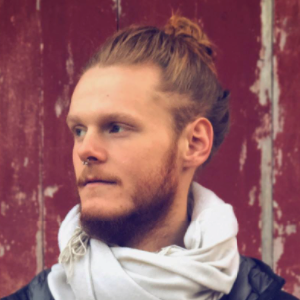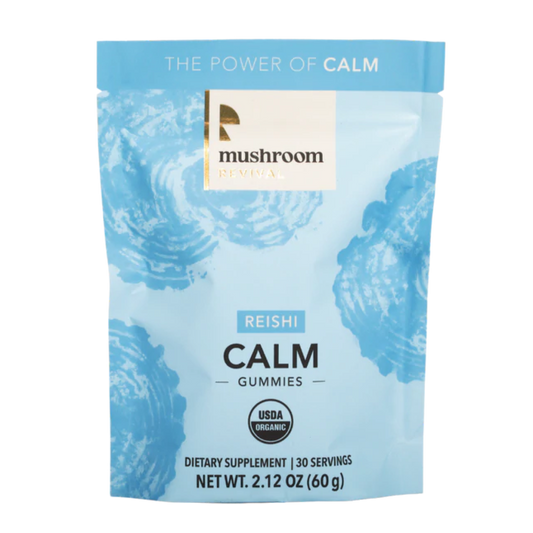Exploring Tradd Cotter’s Extensive Research and Psilocybin Projects
Hear all about Tradd Cotter’s work as a pioneering mycologist in our funny podcast show. Learn about Mushroom Mountain, Mushroom Mountain University, The Blue Portal, and Shroom TV.
Podcast Topics
- Tradd Cotter’s best-selling book and upcoming textbook
- Fungal projects at Mushroom Mountain
- Comical stories throughout Tradd's journey
- Fungal antibiotics
- Psilocybin-assisted therapy with The Blue Portal
- Growing, foraging, and identifying mushrooms in third world countries
- Online mushroom education with Mushroom Mountain University
- Mycoremediation
- Spotted Lantern Fly invasion and fungal insecticides
- Mushroom spore ink
- And mush more…
Meet Microbiologist and Best-Selling Author, Tradd Cotter
Image from Certified SC. https://www.youtube.com/watch?v=FK6dutoA_KA.
Today, we are joined by an innovative, charismatic mycophile and good friend, Tradd Cotter. Tradd Cotter is a microbiologist, mycologist, and organic gardener. He has been cultivating commercially and experimentally for over 28 years and in 1996 he founded Mushroom Mountain where he and his team cultivate fungi for food production. They also explore various applications for mushrooms. He is primarily interested in low-tech and no-tech cultivation strategies so that anyone in the world can grow mushroom strains!
Tradd started working on a mushroom farm when he was 20 years old. At 21, he became the head grower of the site. He began a life devoted to fungi. What’s more, Tradd started this career by quitting his job bartending “on the spot'' 27 years ago. Well, soon after he quit his job, he started a mini-mushroom garden in a 4x6 closet. He kept mushroom growing as a hobby while he worked a day job, but eventually, he got a $10 order for his fungi fruit. That was the beginning of his company, Mushroom Mountain. Now, Tradd and his partner own 17 acres with a 50k square foot warehouse in the Blue Ridge Mountains in South Carolina — the most fungal diverse region in North America. Listen to the podcast for explicit details about Tradd’s journey into the mushroom field.
At the time of recording the podcast, Tradd had been working on his second textbook. It’s about the use of fungi in agriculture, medicinal, and remediation industries. He explains how mushrooms can be used in several fields across the board such as in trash and mycoremediation, insect invasions, antibiotic medicines, and more. The text will be posted every four years and will include new additions and case studies for fellow mycologists to highlight their work. His first book, Organic Mushroom Farming and Mycoremediation: Simple to Advanced and Experimental Techniques for Indoor and Outdoor Cultivation, is a best-seller. Tradd wrote it because of the lack of mushroom gardening resources when he was younger. Before, he only had The Mushroom Cultivator: A Practical Guide to Growing Mushrooms at Home by Jeff Chilton and Paul Stamets alongside High Times Magazine ads to fuel his studies.
Yet, Mushroom Mountain and his books are just the beginning of his pioneering fungi journey. In the podcast, you’ll learn about Tradd’s work in Jamaica and the psilocybin production lab spawned for microdose therapy. Plus, you’ll hear more super interesting research-filled, and funny stories. Continue to read this post to learn about some of Tradd’s main projects that you can explore today.
Tradd Cotter’s Projects
Below, you’ll find some of Tradd’s projects and how you can get involved. From growing your own mushrooms to taking a trip overseas for a psilocybin-assisted therapy session — you’re sure to get your fill of fungi from Tradd who’s a very fun guy.
Mushroom Mountain
Mushroom Mountain is Tradd’s main fungal business. It's a company that helps the people and the planet by researching and developing "fungal solutions for world hunger, pest control, and disease” (3). There you can purchase books, Mycomatrix mushroom extracts, mushroom fruiting kits, and other cool shroomy things. When you find yourself on the website, you’ll be able to learn how to grow your own mushrooms or troubleshoot existing gardens. You can also register for workshops and certifications such as the "Wild Mushroom Food Safety Certification'' in South Carolina — and New York — or the "Wild Mushroom ID Class" held online via Zoom. There is also a space to learn about his Mycoremediation research project as well.
Mushroom Mountain University
After you're done walking through Mushroom Mountain, head over to Mushroom Mountain University where you can learn more! That’s where you’ll register to learn from Tradd Cotter and guest speakers via on-demand courses such as…
- Ecology and Life Cycles of Cultivated Mushrooms
- Introduction to Mushroom Identification Basics
- Four Easy Ways to Grow Mushrooms at Home
- Indoor Mushroom Cultivation on Sterilized Substrates
- Introduction to Mycoremediation
- Mushroom Tissue Culture: Lab and Spawn Skills
The Mushroom Mountain University’s on-demand courses will be available soon, so sign-up to stay notified via email or keep checking the site for updates.
Psilocybin-Assisted Therapy with The Blue Portal
Next, The Blue Portal is Tradd’s psilocybin therapy organization, which is based in Jamaica. It was founded on a farmer-to-farmer program. First, Tradd started in the country teaching mycology courses in Kingston and Saint Thomas for “the highest attended program in all the program’s history.” However, during one lesson he discovered psilocybin was legal in the country. This was the inoculation of The Blue Portal.
The Blue Portal has Psilocybin-Assisted Therapy Retreats in “Montego Bay, Jamaica, and Cahuita, Costa Rica” in comfortable home settings near the water (6). Tradd partners with licensed therapists to provide comfortable, guided, and healing sessions to help conditions such as “depression, anxiety, PTSD, obesity, alcoholism, nicotine addiction, and other substance abuse concerns” (6). There are currently retreat dates open for registration this year. The costs are good. They are all-inclusive besides the airplane ticket to and from the location of choice.
During the experience, participants are provided eye shades that allow the eyes to stay open and closed. The onset of the psilocybin medicine takes about 20 minutes, then after 30-45 minutes, the effects will drop the participator into a powerful and intense section that will last 3-4 hours. During this part, people “unlock doors and confront the roots of their depression, [discover] hidden power to inspire or create, or see… reality in a whole new light” (6). Furthermore, there will always be a therapist present at all times to provide advice, comfort, discussion, or no discussion. If the experience is ever beginning to overwhelm the participants or if direction is needed, there is always a professional present. Finally, during the last two hours, there is generally relaxing energy that overcomes the mind and body, which leads to the conclusion of the session.
For more information visit https://mushroommountain.com/blue-portal/
Shroom TV
Last, but not least, Shroom TV is available to stream on YouTube. There you can watch videos about mycoremediation, mushrooms, as well as other rad uploads from Tradd and the Mushroom Mountain team.
Connect with Mushroom Communities
One of the best ways to learn more about mushrooms on top of all the resources above is to place yourself in community. For example, get educated by being active on the Facebook Page — Mushroom Mountain Farm — linked below. Join the group, grow mushrooms, post a picture, and go out and get involved. Be sure to look out for mycophiles in meetup groups, at farmer’s markets, and in your local botanical gardens too. Surprisingly, simple things like this will make the world a better place.
Other than that, Tradd shared a message with those that are interested in getting deeper into the mushroom field. He tells listeners to look at things they don’t like in the world and wonder how they can change them. His advice? Don’t be afraid to experiment and fail. Keep chasing ideas and getting knowledge: read a book, go on walks, and research online. Alex Dorr also mentions that we can contact scientists through email and ask them for their research papers, join groups, and get to know people who live overseas online. Importantly, connecting with fellow mushroom people and sharing with them is key. And more specifically, giving back your ideas to your mushroom community rather than holding them in will drive the fungi field further in the future to come.
For a very funny and super interesting chat with Mushroom Revival hosts and Tradd Trotter — check out the podcast show! It’s a nice long one, so tune in while cooking a mushroom dinner or going for a fun foraging walk. Enjoy!
Podcast Show Notes & Works Cited
- Best Selling Book: Organic Mushroom Farming and Mycoremediation: Simple to Advanced and Experimental Techniques for Indoor and Outdoor Cultivation by Tradd Cotter. https://shop.mushroommountain.com/collections/books-gifts/products/organic-mushroom-farming-and-mycoremediation
- Book: The Mushroom Cultivator: A Practical Guide to Growing Mushrooms at Home by Paul Stamets and J.S. Chilton. https://www.amazon.com/Mushroom-Cultivator-Practical-Growing-Mushrooms/dp/0961079800
- Website: Mushroom Mountain. https://mushroommountain.com/
- Courses: Mushroom Mountain University. https://mushroommountain.com/mushroom-mountain-university/
- Facebook: Mushroom Mountain Farm. https://www.facebook.com/MushroomMountainFarm
- Psilocybin-Assisted Therapy: The Blue Portal. https://mushroommountain.com/blue-portal/
- Shroom TV: https://shroomtv.com/
- “Quit your job and devote your life to mushrooms.” https://newyorkmyc.org/lectures/how-to-quit-your-job-and-devote-your-life-to-mushrooms/





























